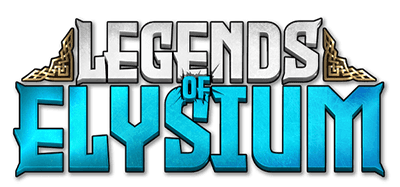Predicting the Rising Value of Trading Card Games Assets
The world of trading card games (TCGs) is a fascinating realm where fantasy and strategic elements blend seamlessly. The thrill of collecting, trading, and battling with unique cards has captivated millions of players worldwide. One such game that has gained significant attention is Legends of Elysium. However, the soaring prices of these cards have become a topic of interest for both players and investors. This article explores the use of decision tree analysis to predict these price hikes. Trading card games, with their intricate blend of fantasy and strategic elements, have become a global phenomenon. The ability to collect, trade, and strategize with a deck of cards has drawn players from all walks of life. These games often feature complex game mechanics, rich lore, and stunning artwork, making them a favorite among fans of strategy games and fantasy enthusiasts alike. The value of trading card games has seen a significant increase over the years. The rarity and demand for certain cards have led to soaring prices, making them a viable investment. However, predicting these price hikes can be a daunting task. This is where decision tree analysis comes into play. The article titled “Prediction Soaring Price by Decision Tree Dealing” published in the International Journal of Digital Society (IJDS) in 2023, presents an in-depth analysis of the trading card game (TCG) market, focusing on the prediction of soaring prices using decision tree models. The authors address the challenge of imbalanced data in the TCG market and propose methods to improve the recall and prediction of used TCG market prices.
The study begins with a preliminary experiment that highlights the importance of addressing imbalanced data in the TCG market. The authors note that without addressing imbalanced data, the decision tree models constructed were highly inaccurate, leading to a failure in predicting soaring prices. This observation sets the stage for the main focus of the study, which is to propose methods to deal with imbalanced data. The authors use a dataset of 43,535 cards for which price data was available by 2022-06-18. The dataset excludes cards that cannot be used according to the game’s official rules, special cards, and cards with special forms. The authors label the cards as “soaring” if the percentage of price soaring was 1.5 times or greater than the minimum price. However, they limit the labeling to cards with a minimum price of 1 USD to 150 USD to avoid the impact of ultra-high prices on the results. The authors apply three representative methods to deal with imbalanced data: Synthetic Minority Over-sampling Technique (SMOTE) for oversampling, random undersampling, and a cost-aware approach. The authors note that each method increased recall and predicted correctly in response to the imbalanced data. They found that undersampling and a cost-aware approach were effective learning methods to improve prediction accuracy. The authors conclude that the methods for dealing with imbalanced data are effective in predicting the used TCG market’s price increases. They suggest that future research should consider using undersampling and cost-aware approach as well as other methods not used in this study. They also propose the idea of applying an imbalance response to each price range and using a different model for specific price ranges.
In comparison to the game mechanics used in Legends of Elysium, the study provides a different perspective on the trading card game market. While Legends of Elysium focuses on fantasy and strategic elements to engage players, this study emphasizes the importance of data analysis and prediction models in understanding and predicting market trends. Both approaches are crucial in their own ways. The fantasy and strategic elements in Legends of Elysium contribute to the game’s popularity and demand, which in turn influences the market prices. On the other hand, the data analysis and prediction models proposed in this study provide a way to understand and predict these market price changes. In conclusion, this study offers valuable insights into the trading card game market, particularly in predicting soaring prices. The methods proposed for dealing with imbalanced data can be beneficial for stakeholders in the TCG market, including players, collectors, and sellers. Furthermore, the comparison with Legends of Elysium highlights the interplay between game mechanics and market dynamics, emphasizing the importance of both in the overall TCG ecosystem.
